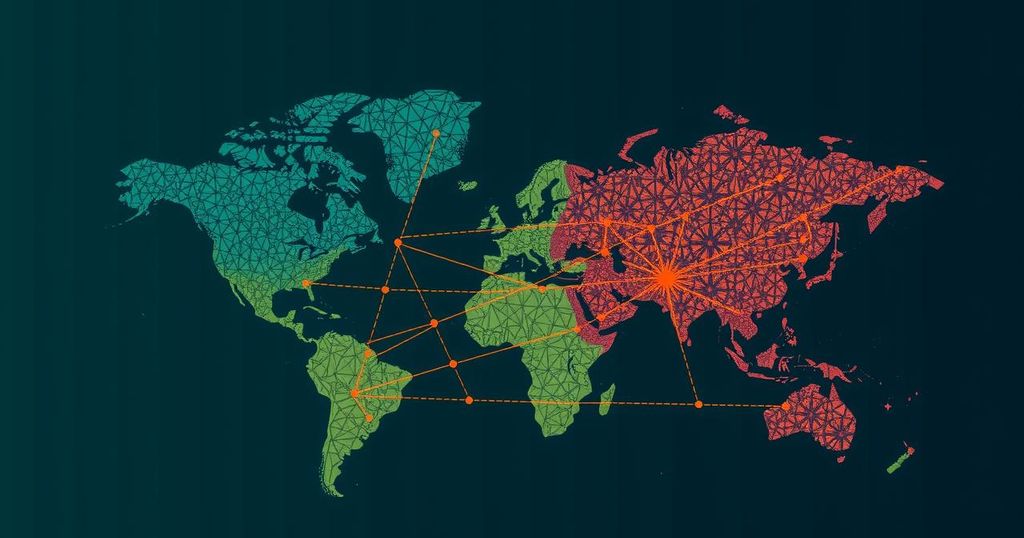The Alarming Link Between Climate Change and Authoritarianism: A Causative Analysis

The article examines the troubling link between climate change and authoritarianism by analyzing the aftermath of Super Typhoon Yolanda in the Philippines. It highlights how authoritarian leaders exploit crises stemming from climate disasters to consolidate power, citing parallels in the rise of similar leaders globally. The findings include empirical research suggesting that natural disasters can lead to declines in democratic governance and heightened negative societal attitudes. Ultimately, the article advocates for proactive measures to preserve democratic institutions and emphasizes the possibility for collective action against the threat of authoritarianism.
In November 2013, the Philippines experienced one of the most powerful tropical cyclones recorded, Super Typhoon Yolanda. This catastrophe resulted in catastrophic destruction, with wind gusts reaching 235 miles per hour and a storm surge of 17 feet, leading to an officially reported death toll of 6,300, though estimates suggest the actual number was much higher. Rodrigo Duterte, then mayor of Davao City, gained notoriety for his controversial response, which included a threat to shoot looters attempting to seize aid. His subsequent presidential campaign in 2016 capitalized on the public’s distress following the Typhoon, ultimately leading to a resounding electoral victory. Duterte’s administration was marked by a violent campaign against drugs, resulting in approximately 30,000 deaths, the imposition of martial law in certain regions, and legislation enhancing police powers. This evolution reflected not only a significant abuse of authority but also a trend emerging globally, with various leaders adopting authoritarian strategies in the face of climate-induced crises. Leaders like Narendra Modi in India, Jair Bolsonaro in Brazil, and Donald Trump in the United States have utilized similar tactics, often promoting division and undermining democratic norms while climate change exacerbates societal vulnerabilities. The correlation between natural disasters and the rise of autocratic leaders is increasingly recognized. Political scientists suggest that severe climate events can compel people to prioritize immediate safety and decisive leadership, even at the expense of democratic principles. A recent study highlighted that the impact of tropical cyclones on island nations correlates with a measurable decline in democratic governance, introducing the concept of “storm autocracies.” This research demonstrated that such storms reduce democracy scores in affected countries on average by 4.25% in the aftermath. Additionally, psychological studies indicate that exposure to information about climate threats can exacerbate negative attitudes toward marginalized groups, thus fostering an environment ripe for authoritarian tendencies. The data suggest that as individuals face existential threats, they may gravitate towards leaders who promise simplified solutions to complex issues, even if those leaders deny the reality of climate change. Despite these trends, experts caution against resignation to a deterministic view regarding democracy’s future in the face of climate change. Instead, they advocate for proactive measures to counter authoritarian impulses, suggesting that strong, communal efforts and policy reforms are essential to safeguarding democratic institutions. Individuals engaged in climate activism might find strength in uniting under shared values of justice and environmental stewardship rather than divisive identities. Understanding the psychological ramifications of climate change can catalyze collective action aimed at promoting democratic resilience. As McCarthy asserts, “The future is not written. It is what we make it.”
The article discusses the alarming intersection of climate change and the rise of authoritarianism, highlighting that recent history reflects a disturbing trend wherein leaders exploit crises exacerbated by environmental disasters to consolidate power. Using the case study of Super Typhoon Yolanda in the Philippines as a focal point, it examines how the chaos and fear arising from such catastrophes can lead to a populace seeking strongman leaders who promise security and relief. The narrative is supported by empirical studies linking natural disasters with sliding democracy scores, illustrating how increased environmental threats may push societies toward totalitarian governance. Furthermore, it delves into the psychological impacts of climate anxiety, presenting findings that citizens confronting such threats may inadvertently cultivate prejudiced sentiments or authoritarian political preferences. Notably, the piece calls for a concerted effort to address rising authoritarianism while simultaneously advocating for climate justice to foster collective empowerment in political and social spheres.
In conclusion, the relationship between climate change and the emergence of authoritarian regimes poses a significant concern for global democracy. The evidence indicates that natural disasters can serve as catalysts for consolidating power by exploiting public vulnerability. Furthermore, psychological research suggests that heightened awareness of climate threats may lead to detrimental societal attitudes and a call for authoritarian leadership. However, experts emphasize that the future remains open to our influence, advocating for democratic resilience and collective action as essential means to resist authoritarian trends. The message encourages engagement in civic action, promoting the importance of unity around shared democratic ideals and climate justice, reiterating that individuals can shape a more equitable and resilient future.
Original Source: www.fastcompany.com







